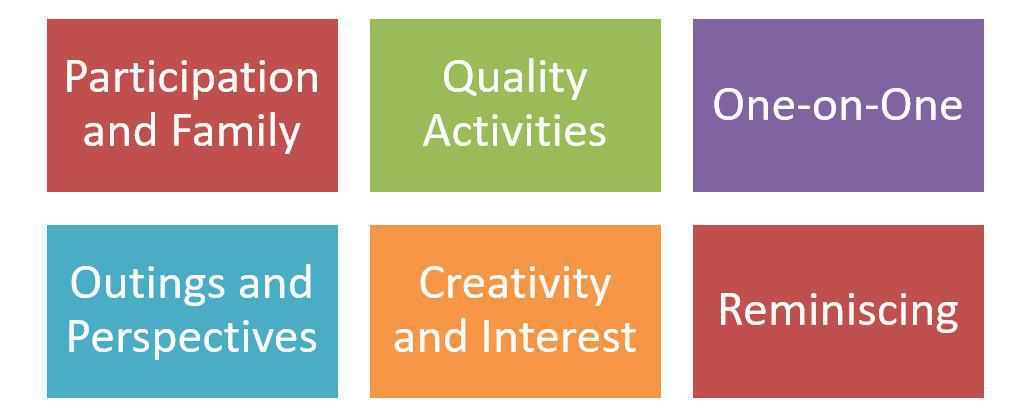There is no one-size-fits-all approach to improving social participation for individuals with dementia. Support strategies should be personalised based on assessments of each resident’s needs, personality, and abilities. A well-structured social environment can help residents feel engaged, valued, and connected.
Supporting Participation and Family
- Encourage regular visits and communication with loved ones.
- Facilitate meaningful interactions between residents and their families.
Quality Activities
- Offer tailored activities that match residents' interests and changing abilities.
- Ensure activities are varied and inclusive to accommodate different needs.
- Assign trained staff to lead and adapt activities for residents.
One-on-One Engagement
- Some residents, especially those who are introverted, may prefer smaller or individual activities over large group settings.
- Residents going through difficult transitions may need extra time and effort to build trust with staff.
- Those with advanced cognitive decline may struggle to participate in group activities and benefit from individualised support.
Outings and Changes of Scene
- Whenever possible, arrange outings that provide stimulation and a change of scenery.
- Experiencing different environments can enhance outlook, quality of life and bring a sense of excitement.
Creativity and Interests
- Encourage participation in gardening, art, sensory activities, and hands-on projects suited to individual abilities.
- Incorporate reminders of past roles (e.g., a former mechanic using a safe toolbox, a florist potting plants).
- Animal therapy can provide emotional comfort and stimulate memories for those who enjoy animals.
- Use music therapy, personalised playlists, and relaxation apps to stimulate memory and emotions.
- Offer structured, ongoing projects (e.g., pottery, large Lego or Meccano builds) as part of the care plan to maintain engagement.
Reminiscing and Reflection
- Provide opportunities for storytelling in one-on-one or group settings to help residents connect with their past.
- Use reminiscence therapy, which involves discussing past experiences, to foster emotional well-being and engagement.
By creating a nurturing and adaptable social environment, nursing homes can enhance the well-being of residents and promote meaningful social participation.

